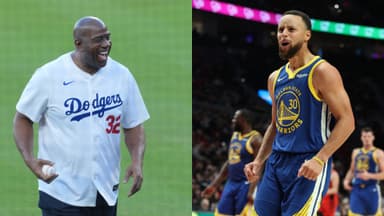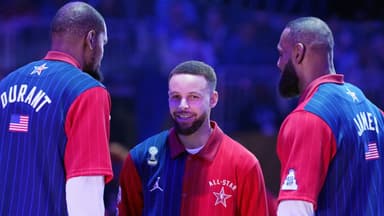So much of the history of Stephen Jackson is bundled up in a few small moments. There’s obviously his beef with Tony Parker, one that resulted in him leaving the San Antonio Spurs for less money and less stability, simply because he couldn’t stand the man. He was the face of the Charlotte Bobcats, and their terrible, terrible on court play. But, nothing defined Jak’s career, or the 2000s as a whole, quite like the Malice at the Palace.
November 19th, 2004 was a day that changed the NBA forever. The Indiana Pacers took on the defending champion Detroit Pistons in what was a tone setting game for the season. These were the two best teams in the East, with respect to the New Jersey Nets, and they hated each other.
Following a hard foul, the teams had to be separated. Ron Artest, now known as Metta Sandiford-Artest, laid down on the scorers table, only to be pelted with a drink thrown by a fan. This is where things went ugly. Artest rushed into the stands, attempting to fight the drink chucker. Stephen Jackson followed him.
The act resulted in the longest non-drug or betting based suspensions in years, and effectively ended the Pacers’ chase of their first championship. When asked if he regretted his actions, Jackson felt bad not for himself, but for the aging legend he and Artest had let down.
“Definitely [I regret it], definitely, and for multiple reasons,” he said on Byron Scott’s Fast Break Podcast, “Reggie [Miller] is the main reason. We had a team, if anyone knows basketball and sees the team we had and the way we were playing at that point, it was no way we weren’t winning the championship that year.”
Reggie Miller spent his whole career with the Pacers, but only made one Finals run in 2000, when Indiana was subsequently demolished by the first ring won by Shaquille O’Neal and Kobe Bryant for the Los Angeles Lakers. He would retire without a ring, being one of the best players to never win a championship.
Miller was stuck in an East that was dominated by Michael Jordan. When Jordan retired the first time, it was Shaq and the Magic who claimed the crown of the conference. A year later, Miller lost his chance to the New York Knicks. By the time Jordan retired for a second time, the Pacers were stuck behind the Nets and Pistons.
’04-05 was a resurgent season for the Pacers before it all went downhill. “We had everything. It was all dedicated to Reggie. So we did a lot of things that we didn’t want to do, just to make sure that this job gets done for Reggie,” remembered Jackson, but it wasn’t just Miller facing the consequences. “I definitely regret it because that incident cost me a lot of all-star games too.”
Stephen Jackson did not make a singular all-star appearance in his career. With career averages of just about 15, five, and five, Jackson was an excellent role player, but never much beyond that. Still, Malice at the Palace ruined his ascension just as much as it did for Artest.
Between legal fees for a court date that saw Jackson, Artest, and teammate Jermaine O’Neal get charged with misdemeanor assault and the aforementioned suspensions, the financial cost was massive, but the hit to reputation was likely even higher.
“If anybody that was involved in that say they don’t regret it, they lying.” Jackson was pretty blunt in that regard. But there are reasons to do the wrong thing for the right reasons. In his own words, “What I don’t regret is being there for my teammate. You throw a beer in anybody’s face around the world, that’s assault, but it’s not assault when you’re dealing with a rich, black athlete.”
The standard that players are held to now is one that largely stems from the reaction from fans and media alike following the Malice at the Palace. While the NBA has done little to stem the abuse that players face, as is often highlighted by players like Russell Westbrook, no one has taken “standing up for themselves” to such an extreme since.







